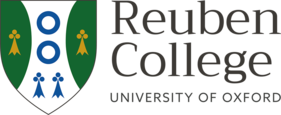Students showcase their public engagement with research projects
In week 4’s Tuesday Talk of Michaelmas Term we had the ‘Student Takeover’ - an exciting opportunity to hear from some of Reuben’s students. The focus of the talks this week was public engagement, which is one of the college’s core strategic themes. Whether the goal is to educate the public on a topic or inspire the next generation of scientists, public engagement is one of the fundamental activities in an academic career. Reuben college encourages students to get involved with public engagement through the ‘public engagement with research fund’ which allows them to propose and develop an engagement project with mentorship from Reuben Fellows. The result is an impressive array of projects which were the subject of the six talks this week.
First up were DPhil students, Jennifer Chennells (Reuben College) and Ellen Baker (Balliol College), talking about their ‘Guess who’ inspired game. The game is designed to educate both children and adults about the incredible variety of bees in the UK and some of their different characteristics. Only a small number of guests at the dinner knew that the UK has around 270 species of bee! They’ve had great feedback about the game, with players reporting that they learnt new and unusual species of bees.
Our second talk was from Fernanda Diaz Osorio, who has recently handed in her thesis for the MSc in Water Science, Policy and Management. Fernanda has been researching water issues in Oaxaca City, Mexico where, while most houses have a piped water connection, access to this water is intermittent, meaning many rely on other sources, such as water trucks. Her research involved conducting interviews and focus groups to learn about people’s use of these water trucks. Having submitted her thesis (written in English), Fernanda is going one step further- summarising her findings and translating her results into Spanish so that it can be read by the participants of the study, pairing with an artist to create stickers that direct people to her research outputs.
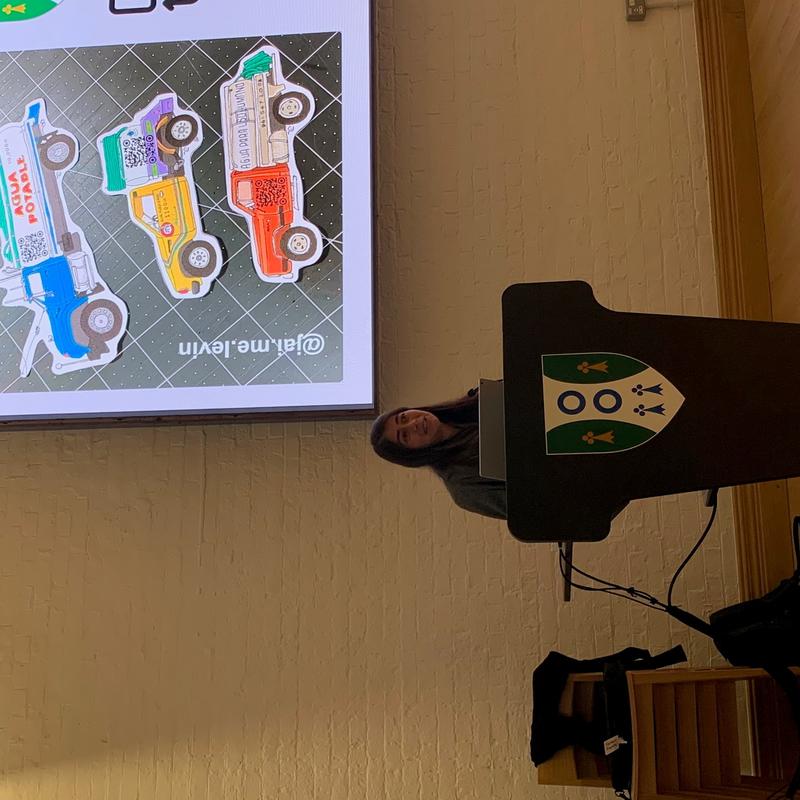
Next up we had DPhil student Katherine Heighes (Interdisciplinary Bioscience BBSRC Doctoral Training Partnership), talking about endometriosis. Endometriosis is a health condition experienced by one in ten women! Despite often having severe symptoms, which can result in visits to A+E, diagnosis of endometriosis takes 8.8 years on average. Katherine’s project aims to tackle lack of awareness and stigma associated with women’s health. Working with Endometriosis Care, Katherine produced materials, interactive activities and a handmade felt uterus model, all of which were taken to an event held at the Westgate shopping centre in Oxford. This gave the team an opportunity to speak to people of all ages about the condition.
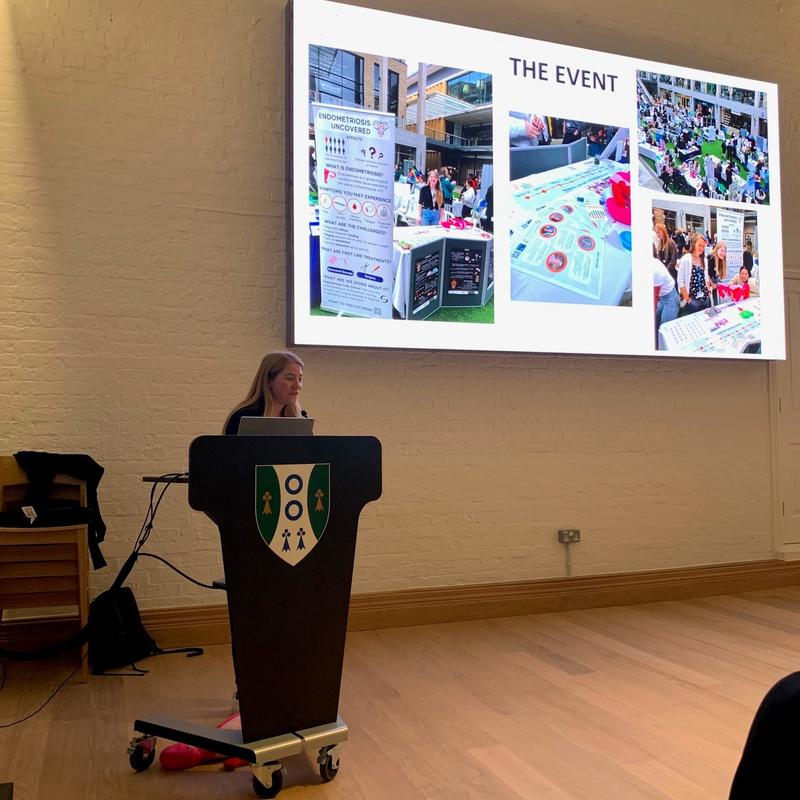
Last up, before the main course was served, was Katarina Vukosavljevic (DPhil in Health Data Science), talking about developing an interactive game to help teach people about the role of artificial intelligence (AI) in health care. AI can be a valuable diagnostic tool and could help to improve patient’s care, but some work is needed to help people better understand it. The goal of the game is to select the best AI model and its inputs (e.g. age, BMI, heart rate, temperature) and see how this affects its ability to predict the mortality risk of patients in an intensive care unit. They tested the game at the Reuben Insights Festival and are now developing it further.
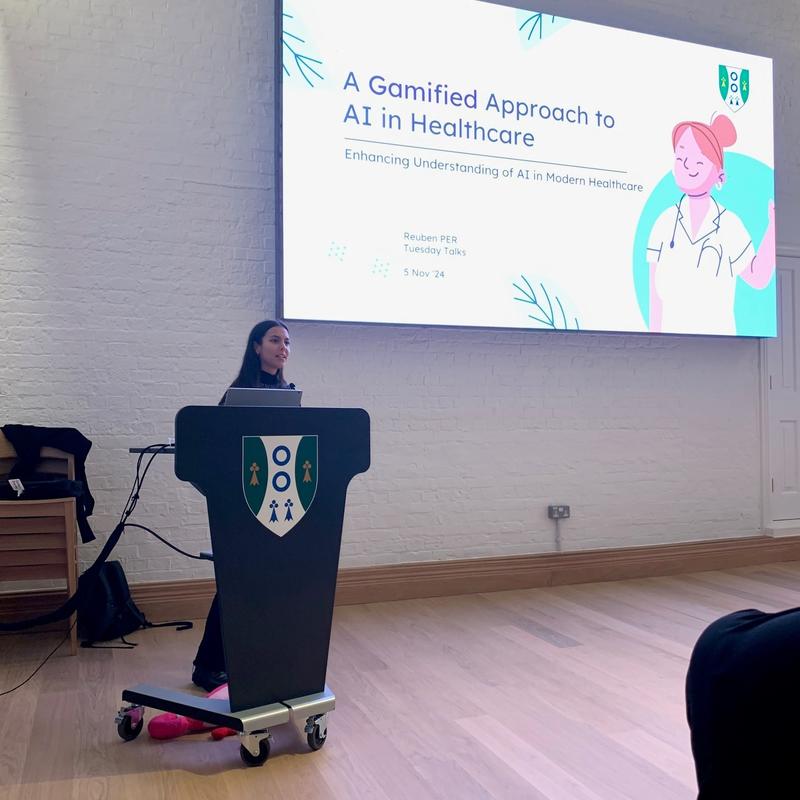
Taking a break from the talks, we then had the main course – a very enjoyable and generous meal of roast chicken with vegetables and a giant Yorkshire pudding. During dinner, at my table, we discussed the talks and the benefits of doing outreach, both for the community but also the skills and experience it gives you as a researcher. We shared some of our own outreach experience and encouraged the new Reuben students to get involved - even if you don’t have a fully formed idea you can get help to develop it or (if you don’t have a lot of time) it is often possible to help with someone else’s public engagement activity. There is a lot happening at Reuben but also across the university, with many departments having their own outreach co-ordinators and activities.
After the main course, Nithishwer Anand (DPhil student in Biochemistry) introduced us to Reubocomp, a workshop in Irumbulichery (a rural hamlet in India). Limited exposure to different career paths and limited resources means that some students may be unaware of the science careers that are available. Reubocomp aims to address this by introducing undergraduate students to life sciences research. They worked with 10 undergraduates from Irumbulichery and introduced them to some different areas of medical and health sciences, which also have a computational element. The students then did a summer project which gave them research experience and valuable skills needed for their future careers.
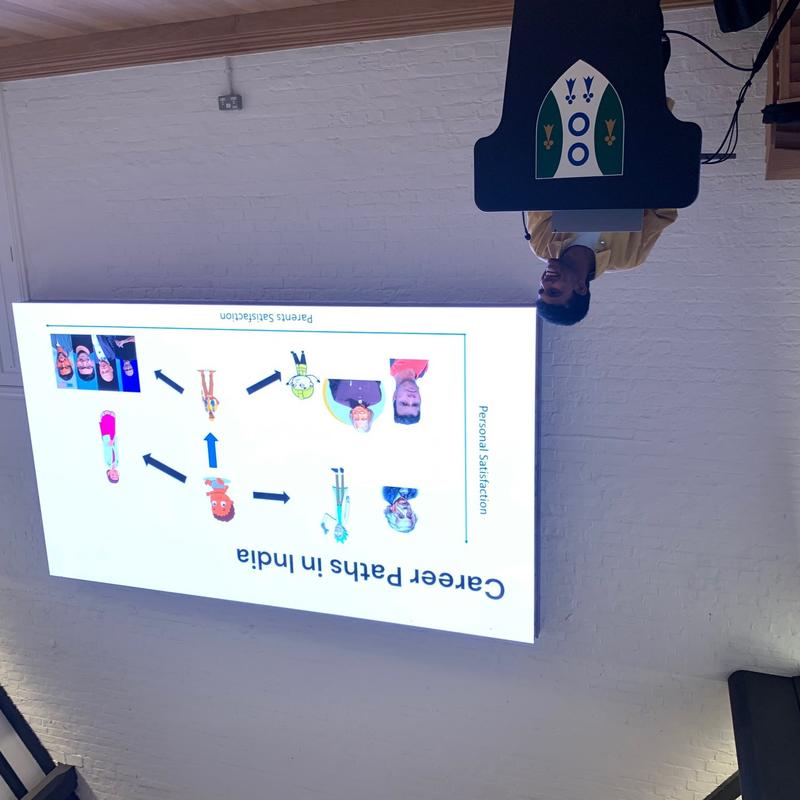
The final speaker was Julia Salafranca, who is the final year of her DPhil (in Molecular and Cellular Medicine) who talked about her journey with public engagement. She briefly outlined her research on neutrophils and arthritis before giving an overview of the wide range of public engagement activities she has taken part in during her time in Oxford. This has included creating gloves that simulate arthritis at the Reuben Insights Festival, as well as running workshops, school visits and creating a video for Oxford Sparks. She finished off her talk with a list of reasons why we should all be involved in our own public engagement activities; such as improving communication skills, the importance of giving back to the community, getting an outside perspective on your work and how much fun it can be. She finally gave us some tips on how best to do this, like starting small and to reusing material.
Instead of the usual discussions over dessert, we were challenged to make a clay model representing our research. While we ate a delicious sticky toffee pudding we created our little models, and then each of us took it in turns to explain our work. As would be expected at a Reuben dinner, there were quite a variety of topics. At our table these included energy, volcanoes, neutrophils and arthritis, chemicals in solution, establishing an Oxford college and writing a fictionalised memoir of a Hungarian Baroness who survived the holocaust (represented as a destroyed bridge – a memory from the siege of Budapest). Presenting our work in an accessible way meant there were lots of questions (e.g. how exactly do you build a 200-atom microscopic cage?) and I definitely learnt many new things.
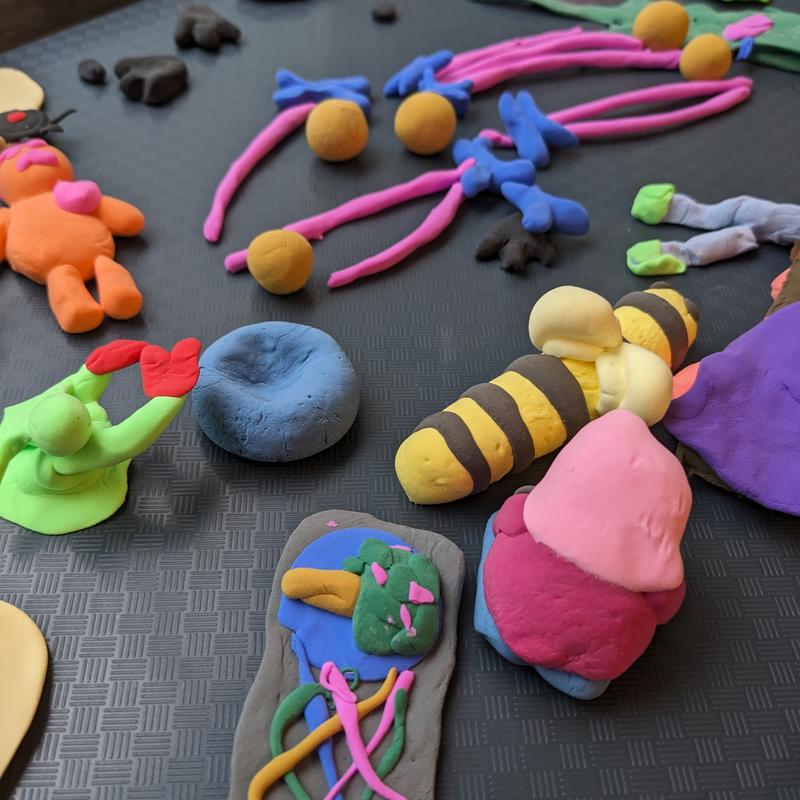
Some models of student work from the evening
Overall, it was a fantastic evening - great food and discussion and a fantastic opportunity to hear about some amazing work that the students have been doing. It really highlighted the value of engagement activities (both for the public and for the researchers) and hopefully has inspired many in the audience to get involved!

